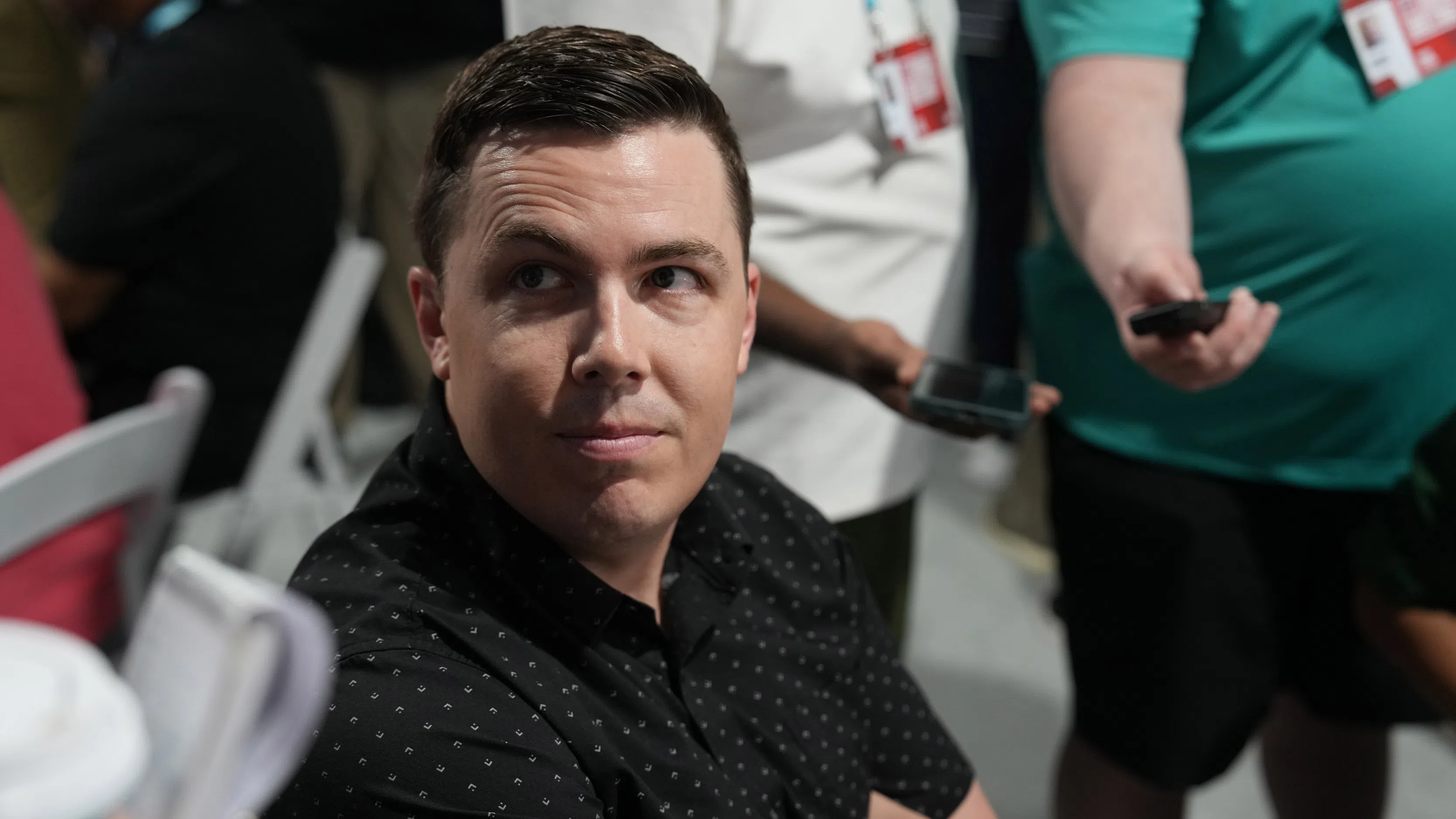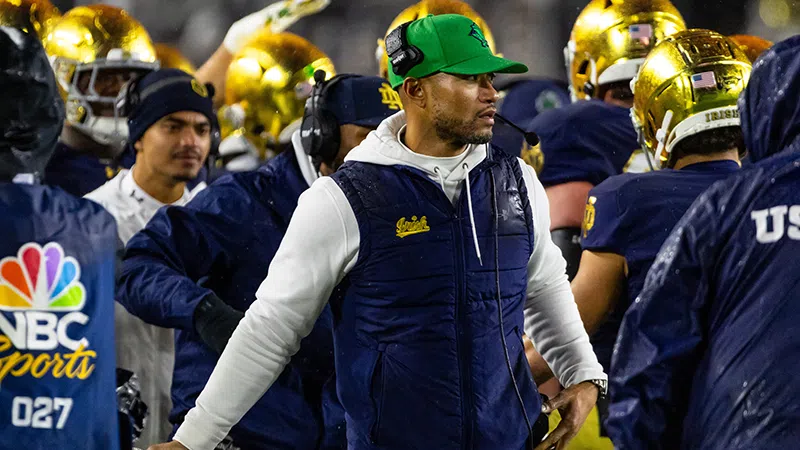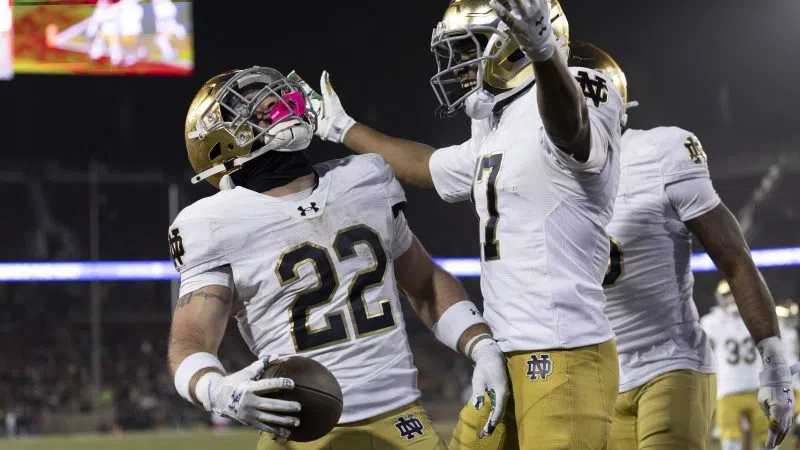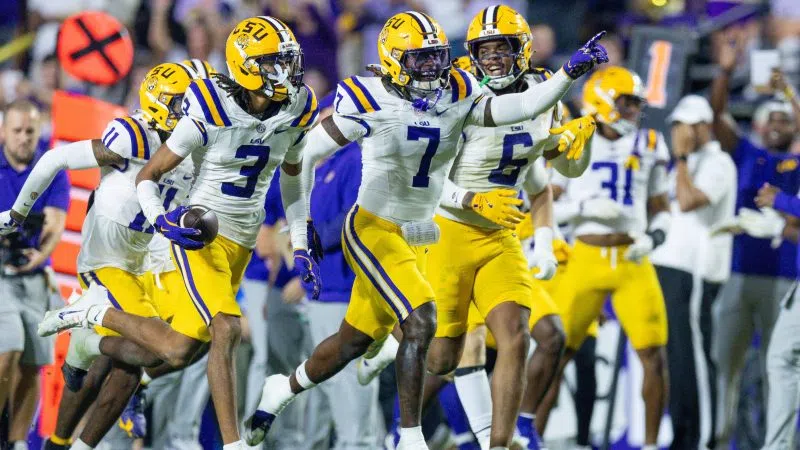
By Ross Jackson
After hiring Super Bowl-winning Philadelphia Eagles offensive coordinator Kellen Moore as the team’s new head coach, the New Orleans Saints are expected to take some noticeable steps forward on offense.
What It Took To Get Here
New Orleans tried to extend its Sean Payton-led success under former offensive coordinator Pete Carmichal for the two seasons following Payton’s departure after the 2021 season.
In 2022, the Saints finished No. 19 overall in total offense and No. 22 scoring. The team improved in 2023 to No. 9 in scoring and No. 14 in total yardage, but that wasn’t enough for the Saints to stand pat. Those tough years of production then sent the Saints on the search for a new offensive coordinator, a search that ended with the hire of former San Francisco 49ers assistant Klint Kubiak.
Kubiak’s wide zone, Shanahan-style offense was effectively ranked run-of-the-mill after injuries and other events led to some challenging circumstances including three different starting quarterbacks. The young Kubiak turned out to be a one-and-done for New Orleans, taking the same job with the Seattle Seahawks ahead of the major changes that followed in the Big Easy.
One head coach firing and a near-complete coaching staff roster turnover later, Moore is ready to get things back on track for the Saints’ offense. And he’s doing it without replicating the success of another coach.
Moore’s Offense Is More Than “Quarterback-Friendly”
One of the big reasons for the expected improvement is because Moore’s scheme is often referred to as being “quarterback friendly.” However, after speaking with players and coaches during the team’s offseason programs, it sounds like the scheme is less quarterback friendly and more player friendly across the board. So we did some more digging in order to figure out what that actually means.
“Honestly, I would say it’s ‘offensive friendly,’” said rookie quarterback Hunter Dekkers. “It helps everyone on the offense play fast. And that’s what you ask for as a player and a coach, is to have an offense that is complex but also simple enough to where you can just play fast.”
So what goes into creating an offense that is friendly for everyone? For some, it comes down to the language. Rookie quarterback and potential starter Tyler Shough focused on how Moore’s playcalling makes the quarterback’s communication clear to every position. Perhaps this is why Moore has had success with so many different passers in his time.
“Everywhere he’s been, each quarterback has had success in their own way,” Shough said. “I think he does a really good job of keeping the language QB friendly where it’s grouped into families. It all makes sense. You’re going out there, you’re playing fast. You know what you’re trying to attack.”
Making Things Easy To Understand
Depending on which player or coach you talk to, they seem to sometimes call it different things, but one of the elements of Moore’s style that makes everything so easily digestible comes down to what Shough referenced: families. Others also called it “grouping” or “buckets,” but the idea is simple.
When in a huddle or discussing plays, Moore has his principles and schemes gathered into families in order to make it easier for players to know what’s being asked of them. For instance, words that designate things like a formation, protection or motion may all share a certain characteristic.
Let’s say the Saints decide that a certain formation will always start with the same vowel sound or first syllable for example. That minimizes the amount of things a player has to memorize. Instead of remembering something specific to a long list of words, knowing that a certain sound, letter or number represents the same thing makes it easier to remember and faster to process.
“It’s all grouped together and makes sense,” offensive line coach Brendan Nugent said. “All the things kind of fit together. So, if you know this, you’re like, ‘Okay, I know it’s in this family, so I can get started.’ And it kind of helps guys to learn it and retain it and know that, ‘Hey, it all fits in in that bucket,’ if you will.”
This allows players to think a little less and instead, just get into their action. That’s something that second-year quarterback Spencer Rattler relishes in when it comes to this new offense.
“I think we all feel pretty good in it,” Rattler said. “It’s a lot of quick, decisive throws. A lot of pure progression … There’s a lot that goes into it. Won’t look easy to the naked eye. But I think if you play ball, I think it’s very friendly to the quarterback. It feels like he just wants us to play point guard, distribute…And not overthink stuff.”
What About The Other Positions?
Not only is the offense shaping up to be friendly for the passers and offense as a whole, but even uniquely and individually for players across the board.
Offensive lineman Landon Young gave a great breakdown of one of the biggest shifts in the offense for the protection up front. Instead of having a list of rules to follow after the ball is snapped based on what the defense does, the Saints’ offense will have a better understanding of what they are expected to do thanks to the pre-snap checks, reads and diagnosis.
“It’s pretty straightforward,” Young said. “It’s not exactly like it, but it’s more like what I had my rookie year. More Mike protection. We’re identifying [linebackers] rather than sliding to sides. So, when we would slide last year, we didn’t say ‘Mike this guy.’ It was like, ‘Okay, this side’s sliding,’ and based on our rules, we blocked who showed up.”
Wide receivers are going to be set up to do more than has been seen in recent Saints offenses. Wide receivers coach Keith Williams gave a glimpse into what that might look like for his unit in 2025.
“He’s going to allow guys to participate, and we’re going to take advantage of guys’ talents,” Williams said. “And [not] be afraid. And then if we feel [the receivers] have the talent, let’s teach them the route instead of negating the fact that they can do it. Let’s just teach it to them because we believe they have the talent.”
It sounds like another common sense approach like what run game coordinator T.J. Paganetti outlined weeks ago during OTAs. If the Saints feel that a player has the talent to do something, instead of forcing them into a role pre-determined by the system, change the system to allow that player to do what they do well. This should have a major impact on the run game just as much as the passing game.
That isn’t just an offensive ideal either. It’s a full-team cornerstone.
“The whole culture is like [that],” Paganetti said. “We’re going to do what works. We’re going to do what fits the players. We’re going to do what is easiest for the players to execute, and not ask guys to do things that they can’t do.”

More New Orleans Saints











